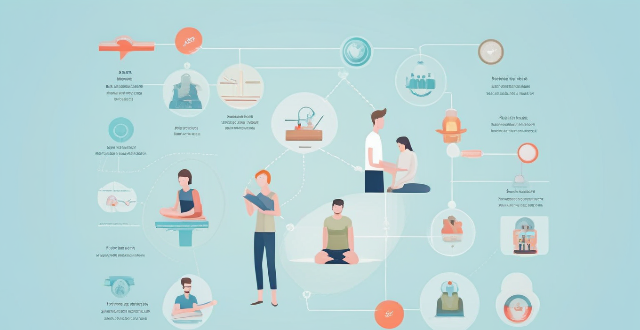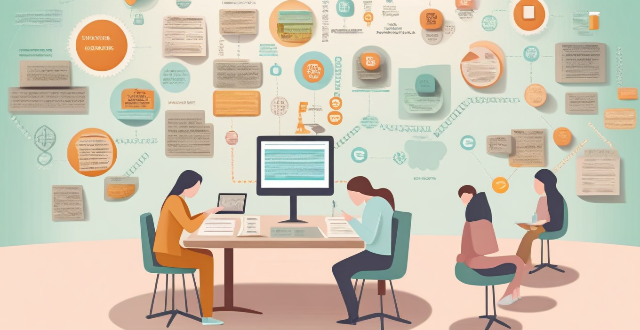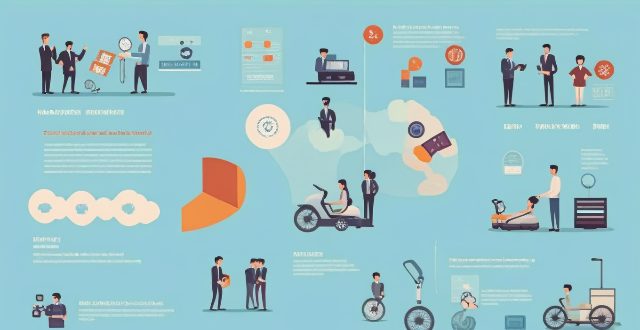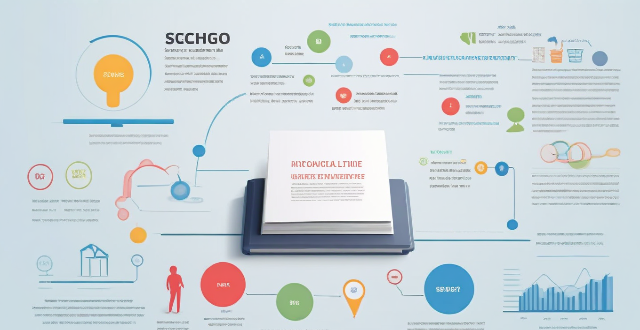Goal Procrastination

How can I overcome procrastination ?
Procrastination, or the act of delaying or postponing tasks, is a common issue that affects many people. It can be challenging to overcome, but with some strategies and techniques, it's possible to break free from this habit and become more productive. Here are some tips on how to overcome procrastination: 1. Identify the Root Cause: The first step in overcoming procrastination is to identify its root cause. Ask yourself why you are procrastinating. Is it because the task is boring, difficult, or uninteresting? Or is it because you lack motivation or feel overwhelmed by the task? Once you have identified the reason, you can take steps to address it. 2. Set Clear Goals: Setting clear goals is essential for overcoming procrastination. When you have a specific goal in mind, it becomes easier to focus your efforts and avoid distractions. Make sure your goals are realistic, measurable, and time-bound so that you can track your progress and stay motivated. 3. Break Tasks into Smaller Chunks: Breaking tasks into smaller chunks makes them more manageable and less daunting. Instead of trying to tackle a large project all at once, divide it into smaller tasks that you can complete one at a time. This will help you feel more accomplished and motivated as you make progress towards your goal. 4. Use Time Management Techniques: Effective time management is crucial for overcoming procrastination. Use techniques such as the Pomodoro Method, where you work for 25 minutes and then take a five-minute break, or the Eisenhower Matrix, which helps you prioritize tasks based on their urgency and importance. These techniques can help you stay focused and avoid distractions while working on tasks. 5. Eliminate Distractions: Distractions are one of the biggest obstacles to productivity. To overcome procrastination, eliminate as many distractions as possible while working on tasks. Turn off your phone, close unnecessary tabs on your computer, and find a quiet place to work where you won't be interrupted. 6. Reward Yourself: Finally, reward yourself for completing tasks or reaching milestones. This will help you stay motivated and maintain your focus on your goals. Choose rewards that are meaningful to you, whether it's taking a break to read a book or treating yourself to a favorite snack. In conclusion, overcoming procrastination requires identifying its root cause, setting clear goals, breaking tasks into smaller chunks, using time management techniques, eliminating distractions, and rewarding yourself for progress made. By implementing these strategies, you can become more productive and achieve your goals without the hindrance of procrastination.

Is there a connection between procrastination and mental health ?
Procrastination is a common behavior that can have negative consequences on mental health, including increased stress and anxiety, depression, low self-esteem, and poor time management skills. To overcome procrastination, one can set realistic goals, create a schedule, eliminate distractions, use timers, reward themselves, seek support, practice mindfulness, and be kind to themselves.

How can I avoid procrastination and stay motivated to learn ?
Procrastination is a common problem that affects many people, especially when it comes to learning. To avoid procrastination and stay motivated to learn, set clear goals, create a study schedule, eliminate distractions, use rewards and incentives, find a study group or partner, and practice self-care.

What are some effective strategies for beating procrastination ?
Strategies for Beating Procrastination include setting clear goals, breaking tasks into smaller chunks, using time management tools, eliminating distractions, rewarding oneself, getting an accountability partner, and practicing mindfulness. These strategies can help individuals overcome procrastination and increase productivity by focusing on specific tasks, prioritizing activities, avoiding interruptions, staying motivated, holding oneself accountable, and becoming more aware of their thoughts and feelings.

How can I overcome procrastination and stay motivated to study ?
Procrastination is a common problem that affects many students. It can be challenging to stay motivated and focused on your studies, especially when there are so many distractions around you. However, there are several strategies you can use to overcome procrastination and stay motivated to study. Here are some tips: - Set clear goals for yourself. Make sure your goals are specific, measurable, achievable, relevant, and time-bound (SMART). For example, instead of saying "I want to do well in my math class," say "I want to score at least 90% on my next math test." Having a clear goal will help you stay focused and motivated. - Break tasks into smaller, more manageable chunks. Large tasks can be overwhelming and lead to procrastination. To avoid this, break your tasks into smaller, more manageable chunks. For example, if you have a research paper to write, break it down into smaller tasks such as selecting a topic, conducting research, creating an outline, writing the introduction, etc. Completing each small task will give you a sense of accomplishment and keep you motivated. - Create a study schedule. Creating a study schedule can help you stay organized and on track. Allocate specific times for studying, breaks, and other activities. Stick to your schedule as much as possible, but also be flexible enough to adjust it if necessary. Having a plan will help you avoid wasting time and reduce the likelihood of procrastination. - Eliminate distractions. Distractions can easily lead to procrastination. To avoid this, eliminate distractions such as social media, television, or video games during your study time. Find a quiet place where you can focus without interruptions. Turn off your phone or put it on silent mode to avoid distractions from notifications. - Use time management techniques. Using time management techniques such as the Pomodoro technique or the Eisenhower matrix can help you stay focused and productive. The Pomodoro technique involves working for 25 minutes and then taking a five-minute break. The Eisenhower matrix helps you prioritize tasks based on their urgency and importance. These techniques can help you manage your time effectively and reduce procrastination. - Reward yourself. Rewarding yourself after completing a task can help you stay motivated. Set up rewards for yourself after completing each task or reaching a milestone. For example, you could treat yourself to a favorite snack or watch an episode of your favorite TV show after finishing a study session. This will give you something to look forward to and keep you motivated. - Seek support. Finally, seek support from friends, family, or teachers if you're struggling with procrastination. They can offer encouragement, advice, or accountability to help you stay on track. Joining a study group or finding a study partner can also provide motivation and support. In conclusion, overcoming procrastination requires discipline, planning, and self-motivation. By setting clear goals, breaking tasks into smaller chunks, creating a study schedule, eliminating distractions, using time management techniques, rewarding yourself, and seeking support, you can stay motivated and focused on your studies.

How does procrastination affect productivity and what can be done to avoid it ?
Procrastination negatively impacts productivity by leading to decreased efficiency, increased stress levels, poor quality work, and missed opportunities. To combat procrastination, individuals should set clear goals, prioritize tasks, break down larger tasks into smaller chunks, eliminate distractions, use time management techniques, and hold themselves accountable. Implementing these strategies can help improve productivity and achieve long-term success.

How can I identify the root cause of my procrastination and address it effectively ?
This guide provides a comprehensive understanding of procrastination, its common causes, and strategies to address it. It emphasizes the importance of identifying personal root causes such as fear of failure, perfectionism, lack of motivation, distraction, and poor time management. The guide offers targeted strategies for each cause, including breaking tasks into smaller steps, setting realistic standards, finding purpose, minimizing distractions, and using time management tools. It concludes by encouraging patience, self-awareness, and consistent effort in overcoming procrastination.

What are the consequences of chronic procrastination ?
Procrastination is a common behavioral pattern where individuals delay or put off tasks until the last minute. While occasional procrastination may not cause significant harm, chronic procrastination can lead to various negative consequences. In this article, we will discuss the potential effects of persistent procrastination on an individual's life. Chronic procrastination often results in increased stress levels due to the accumulation of unfinished tasks and deadline pressures. Procrastination leads to poor time management skills, as individuals tend to underestimate the time required to complete tasks. Chronic procrastination can also have a negative impact on an individual's self-efficacy, or their belief in their ability to succeed. Procrastination can strain personal relationships, both professionally and personally. Colleagues and friends may become frustrated with the individual's lack of commitment and follow-through, leading to conflicts and misunderstandings. In academic settings, chronic procrastination can lead to poor grades and missed opportunities for learning. Similarly, in professional environments, consistent procrastination can hinder career advancement and limit job opportunities. Chronic stress from procrastination can take a toll on an individual's physical health. The constant pressure and anxiety associated with procrastination can contribute to issues such as headaches, digestive problems, and weakened immune function.

Are there any books or resources that can help me overcome procrastination ?
This article explores some books and resources that can help you overcome procrastination. The first book, "The Procrastination Equation" by Piers Steel, provides a comprehensive understanding of procrastination and offers practical tips and strategies to overcome it. The second book, "Eat That Frog!" by Brian Tracy, offers 21 practical strategies for overcoming procrastination and getting more done in less time. The third book, "The Now Habit" by Neil Fiore, offers a unique approach to overcoming procrastination by focusing on the present moment and enjoying guilt-free play. The fourth book, "The War of Art" by Steven Pressfield, offers a powerful perspective on procrastination as an inner creative battle that needs to be won. By implementing these strategies and techniques, you can break free from the cycle of procrastination and start getting things done.

How can I break the cycle of procrastination and start being more productive ?
Procrastination is a common problem that affects many people. It's a habit that can be difficult to break, but with the right strategies, it's definitely possible to increase productivity and get more done. Here are some tips to help you break the cycle of procrastination: 1. Set clear goals for yourself. Write down exactly what you want to achieve and by when. This will give you a sense of direction and make it easier to focus on the task at hand. 2. Prioritize tasks based on their importance and urgency. Start with the most important tasks first and work your way down the list. This will help you stay motivated and focused, as you'll see progress being made. 3. Use time management techniques such as the Pomodoro technique or time blocking to stay on track and avoid distractions. These techniques involve breaking down your work into smaller, manageable chunks and taking regular breaks to recharge. 4. Eliminate distractions by turning off notifications on your phone and computer, finding a quiet place to work, and letting others know that you need some uninterrupted time to focus on your tasks. 5. Hold yourself accountable by finding someone who can hold you accountable for your progress, such as a friend, family member, or colleague. Check in with them regularly to report on your progress and ask for support if needed. 6. Reward yourself for completing tasks. This could be something small like taking a break to read a book or watch an episode of your favorite TV show. Rewards can help motivate you to keep going and make the process of breaking the cycle of procrastination more enjoyable.

How can I overcome procrastination and lack of motivation when it comes to studying ?
Overcoming procrastination and lack of motivation in studying requires discipline, planning, and self-awareness. By setting clear goals, creating a study plan, eliminating distractions, taking breaks, and rewarding yourself, you can improve your productivity and focus while studying. Remember to be patient with yourself and celebrate small successes along the way. With consistent effort and dedication, you can overcome these challenges and achieve your academic goals.

How can I stay motivated and avoid procrastinating on important tasks ?
Strategies to overcome procrastination include setting clear goals, creating a schedule or to-do list, eliminating distractions, and staying accountable. Breaking down goals into smaller tasks can also help in maintaining motivation.

Why do people procrastinate and how can they stop ?
Procrastination is a common behavior influenced by factors like lack of motivation, fear of failure or success, difficulty with self-regulation, and environmental distractions. To overcome procrastination, individuals can set clear goals, improve time management, boost motivation, address emotional barriers, and develop self-regulation skills. Consistent implementation of these strategies can lead to increased productivity and reduced procrastination over time.

What are the benefits of setting goals for studying and how do they impact motivation ?
The benefits of setting goals for studying include increased clarity and direction, improved motivation through short-term milestones and visual progress tracking, better time management with efficient planning and reduced procrastination, enhanced performance via targeted learning and a feedback loop, and stress reduction due to predictability and a sense of control. These advantages collectively contribute to heightened motivation, both immediately and in the long term, making goal setting an essential strategy for effective and enjoyable learning.

What role does self-discipline play in following a study plan ?
Self-discipline is crucial in following a study plan effectively. It involves setting goals, prioritizing tasks, maintaining focus on objectives, and avoiding distractions. By breaking down long-term goals into smaller, manageable tasks and allocating time wisely, self-disciplined individuals can maximize productivity and achieve academic success efficiently. Consistency, overcoming procrastination, and staying motivated are also key factors in sticking to a study plan. Developing strong self-discipline skills can help students reach their full potential.

How can self-assessment help me set realistic goals for myself ?
The article discusses the importance of self-assessment in goal setting. By identifying one's strengths and weaknesses, evaluating progress, and setting realistic goals, individuals can increase their chances of success and avoid feeling overwhelmed or discouraged. The article provides tips for each step of the self-assessment process, including breaking larger goals into smaller steps, prioritizing based on importance and urgency, being specific about what is wanted to achieve and why, considering potential obstacles, and developing strategies to overcome them. Ultimately, self-assessment helps individuals gain a better understanding of their capabilities and what steps need to be taken to achieve their goals.

How can I stick to my study schedule without getting distracted ?
Sticking to a study schedule without getting distracted requires discipline, motivation, and the right strategies. Here's how you can stay on track with your studies: 1. Setting clear goals: Define objectives and break them down into smaller parts to make progress without feeling overwhelmed. 2. Creating a conducive environment: Minimize distractions by finding a quiet space, turning off notifications, and organizing your study area. 3. Utilizing time management techniques: Use a planner to allocate specific time slots for studying and implement the Pomodoro Technique to maintain concentration and prevent burnout. 4. Staying motivated: Give yourself small rewards after completing study sessions or achieving milestones, and visualize success to provide the necessary push to continue. 5. Taking care of yourself: Incorporate regular exercise and ensure adequate sleep to improve mental clarity and concentration. 6. Eliminating procrastination: Tackle procrastination by addressing its root cause and starting with the hardest task to reduce the likelihood of procrastination. By consistently applying these strategies, you can enhance your focus and efficiency in your academic pursuits. Remember, consistency is key, so persevere and stay committed to your study schedule for the best results.

What are some tips for staying motivated during a home fitness routine ?
Staying motivated during a home fitness routine can be challenging, but there are several tips that can help you stay on track and achieve your fitness goals. Here are some of the most effective strategies: 1. Set Clear Goals: Start by setting clear and specific fitness goals. This will give you something to work towards and help you stay focused. Break down your long-term goals into smaller, more manageable short-term goals. This will make it easier to track your progress and keep you motivated. 2. Create a Schedule: Create a schedule for your workouts and stick to it as much as possible. This will help you establish a routine and make exercise a part of your daily life. Plan your workouts ahead of time so that you know exactly what you need to do each day. This will save you time and reduce the likelihood of procrastination. 3. Mix Up Your Workouts: Incorporate different types of exercises into your routine to keep things interesting and challenge different muscle groups. Try new activities or exercises to keep your workouts fresh and exciting. 4. Track Your Progress: Keep a fitness journal where you record your workouts, including the exercises you performed, the number of sets and reps, and any other relevant information. This will help you see your progress over time and stay motivated. Use technology such as fitness apps or devices to track your progress and set reminders for your workouts. 5. Find an Accountability Partner: Find a friend or family member who shares your fitness goals and work out together. Having someone to hold you accountable can be a powerful motivator. Join online fitness communities where you can share your progress, get advice, and find support from others who are working towards similar goals. 6. Reward Yourself: Celebrate your achievements, no matter how small they may seem. Reaching a new personal best or completing a challenging workout deserves recognition. Set up incentives for yourself, such as treating yourself to a massage or buying new workout clothes after reaching a specific goal. 7. Make It Fun: Create a playlist of your favorite songs to listen to during your workouts. Music can help you stay energized and focused. If you find traditional workouts boring, try watching fitness videos or following along with online workout classes. 8. Focus on the Benefits: Keep in mind why you started your fitness journey in the first place. Whether it's to improve your health, gain confidence, or achieve a specific goal, reminding yourself of your reasons for exercising can help you stay motivated. Visualize yourself achieving your fitness goals and imagine how great it will feel when you finally reach them. This can provide extra motivation when you need it most. By following these tips, you can stay motivated and committed to your home fitness routine, ultimately achieving the results you desire.

How can young people balance their education and involvement in climate action ?
Balancing education and involvement in climate action is crucial for young people. Effective strategies include time management, goal setting, and seeking support from peers and mentors. By prioritizing tasks, breaking down goals into smaller steps, and celebrating milestones, young people can achieve a balance between their education and involvement in climate action initiatives. Joining a community of like-minded individuals, finding a mentor, and collaborating with peers can also provide valuable support and opportunities for growth. With these strategies, young people can make a positive impact on the environment while achieving their educational goals.

Who are some of the top goal scorers in this year's football season ?
This year's football season has seen exceptional performances from players across the globe, with Erling Haaland, Lionel Messi, Karim Benzema, Cristiano Ronaldo, and Robert Lewandowski leading the pack as top goal scorers. These players have not only showcased their individual talents but also played a crucial role in their teams' successes throughout the season.

What are some effective methods for reviewing and retaining information before an exam ?
Preparing for an exam can be a daunting task, but with the right strategies and techniques, it is possible to effectively review and retain information before the exam. Some effective methods for reviewing and retaining information before an exam include creating a study plan, using active learning techniques, practicing retrieval and recall, and staying motivated and avoiding procrastination. By following these methods, students can improve their chances of success on their exams.

What are some common mistakes people make when trying to save money ?
Saving money is a crucial aspect of financial planning, but it's not always easy. Many people struggle with saving money and often make some common mistakes that can hinder their progress. Here are some of the most frequent errors people commit when trying to save money: Not having a clear savings goal, underestimating expenses or overestimating income, impulse buying, not taking advantage of discounts and deals, not automating savings, spending on depreciating assets, not reviewing banking and service providers, and ignoring the power of compound interest. By avoiding these common pitfalls, individuals can make substantial progress in their savings journey and achieve their financial goals more efficiently.

Is group study beneficial for exam preparation ?
Group study offers benefits for exam preparation, including knowledge sharing, motivation, improved comprehension, social skills development, stress relief, and better time management. Its success depends on factors like group dynamics and commitment levels.

How does climate adaptation relate to sustainable development goals ?
Climate adaptation is a vital component of sustainable development goals (SDGs) as it helps reduce vulnerabilities and build resilience to the adverse effects of climate change, thereby contributing to the achievement of several SDGs. Relevant SDGs include Goal 1: No Poverty, Goal 2: Zero Hunger, Goal 3: Good Health and Well-being, Goal 6: Clean Water and Sanitation, Goal 11: Sustainable Cities and Communities, Goal 13: Climate Action, and Goal 15: Life on Land. Strategies for integration include policy coherence, financial investment, capacity building, stakeholder participation, risk assessment, research and innovation, and education and awareness. By addressing the challenges posed by climate change through effective adaptation strategies, nations can work towards creating more resilient societies that are better prepared to face future climate risks while continuing to progress towards other SDGs.

How often should I do strength training ?
This article discusses the recommended frequency for strength training based on various factors such as your fitness level, goals, and schedule. It provides guidance for beginners, intermediate and advanced trainees, and those with specific goals like building muscle mass or losing weight. Sample workout schedules are also provided to help you plan your routine effectively. The article emphasizes the importance of proper form, progressive overload, and adequate recovery time for optimal results.

How do I set realistic and achievable career goals ?
Setting realistic and achievable career goals is crucial for professional development. Here are the steps to do it effectively: 1. Self-Assessment: Understand your strengths, weaknesses, interests, and values. 2. Research and Exploration: Investigate qualifications, job market trends, and network with professionals. 3. SMART Goals: Set Specific, Measurable, Achievable, Relevant, and Time-bound goals. 4. Break It Down: Divide long-term goals into smaller, manageable short-term objectives. 5. Regular Review and Adjustment: Assess progress, make adjustments, and stay open to new opportunities.

How does climate governance affect sustainable development goals ?
Climate governance plays a pivotal role in shaping the achievement of sustainable development goals (SDGs). The interconnectedness between environmental preservation and socio-economic advancement necessitates a comprehensive understanding of how climate policies and actions influence the broader spectrum of global development objectives. ## **Impact on Individual SDGs** ### *Goal 2: Zero Hunger* Climate governance directly influences food security by addressing factors such as droughts, floods, and temperature fluctuations that can disrupt agricultural productivity. Effective climate policies can help to: - Ensure stable crop yields through improved irrigation systems and drought-resistant crops. - Mitigate the effects of extreme weather conditions on farming communities. - Promote sustainable land use practices to prevent soil degradation. ### *Goal 7: Affordable and Clean Energy* The transition towards renewable energy sources is at the heart of both climate governance and sustainable energy goals. Policies that encourage the adoption of clean energy technologies contribute to: - Reducing greenhouse gas emissions associated with traditional fossil fuel consumption. - Increasing access to electricity in off-grid areas using solar or wind power. - Creating new economic opportunities in the renewable energy sector. ### *Goal 13: Climate Action* This goal is inherently linked to climate governance, as it calls for urgent action to combat climate change and its impacts. Efficient climate policies can lead to: - Implementation of emission reduction strategies. - Enhanced resilience to natural disasters. - Promotion of environmentally friendly industries and jobs. ## **Cross-Cutting Impacts** ### Health and Well-being Climate governance affects public health outcomes by addressing air quality issues and reducing exposure to extreme weather events. This contributes to achieving: - **Goal 3: Good Health and Well-being** by minimizing climate-related health risks. ### Economic Growth Policies that foster green economies and low-carbon development pathways are crucial for: - **Goal 8: Decent Work and Economic Growth** by creating sustainable job opportunities. - **Goal 9: Industry, Innovation, and Infrastructure** through investment in green technology and infrastructure. ### Social Equity Climate governance also has implications for social equity and inclusion, particularly when considering the disproportionate impacts on vulnerable populations: - **Goal 10: Reduced Inequalities** by ensuring that climate adaptation and mitigation efforts do not marginalize already disadvantaged groups. ## **Conclusion** In conclusion, climate governance is an integral component of advancing sustainable development goals. By prioritizing climate action, nations can make strides in eradicating poverty, achieving food security, promoting health and well-being, and fostering economic growth while protecting the planet for future generations. The synergistic relationship between climate governance and the SDGs underscores the necessity for integrated policy approaches that consider environmental sustainability alongside social and economic development.

What are the rules for offside in football ?
The offside rule in football is designed to maintain fairness and prevent cheating. It states that a player cannot receive the ball while being closer to the opponent's goal than the second-to-last opposing player without being penalized. The rule encourages active play and prevents "goal hanging." Players are not penalized for merely being in an offside position but must interfere with play or gain an advantage from it. Exceptions include corner kicks, direct free kicks, throw-ins, goal kicks, kick-offs, and situations where the ball was last touched by an opponent. Adhering to this rule ensures fair play and enhances the integrity of football matches.

How does team sports impact mental health compared to individual sports ?
This article explores how team sports impact mental health compared to individual sports. It highlights the social support and belongingness provided by team sports, which can reduce feelings of isolation and loneliness. The article also discusses how team sports promote accountability and responsibility, helping individuals develop discipline and self-control. Additionally, it emphasizes the importance of goal setting and achievement in team sports, which can boost self-esteem and confidence. Overall, the article concludes that team sports have a significant impact on mental health compared to individual sports due to their social aspect.